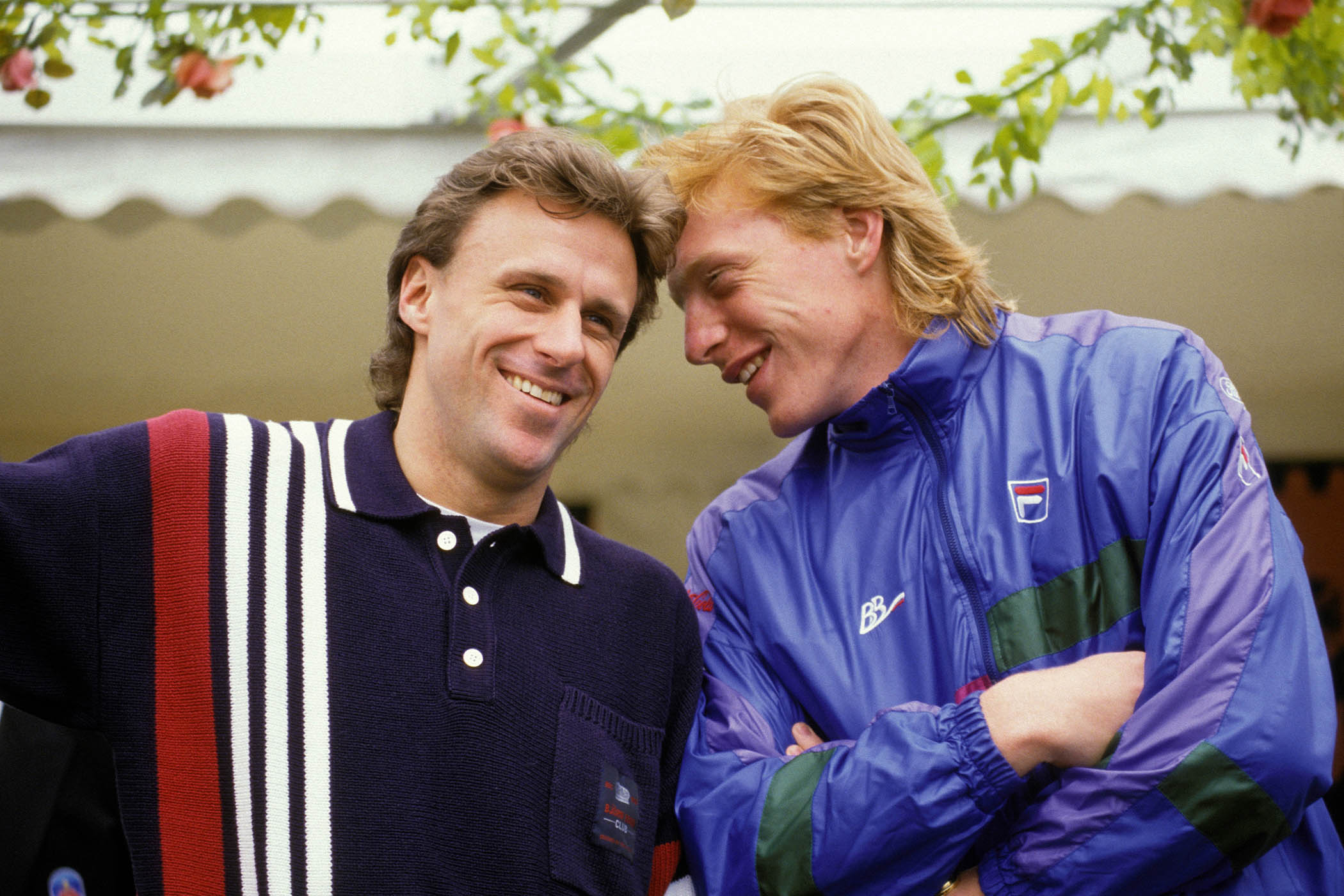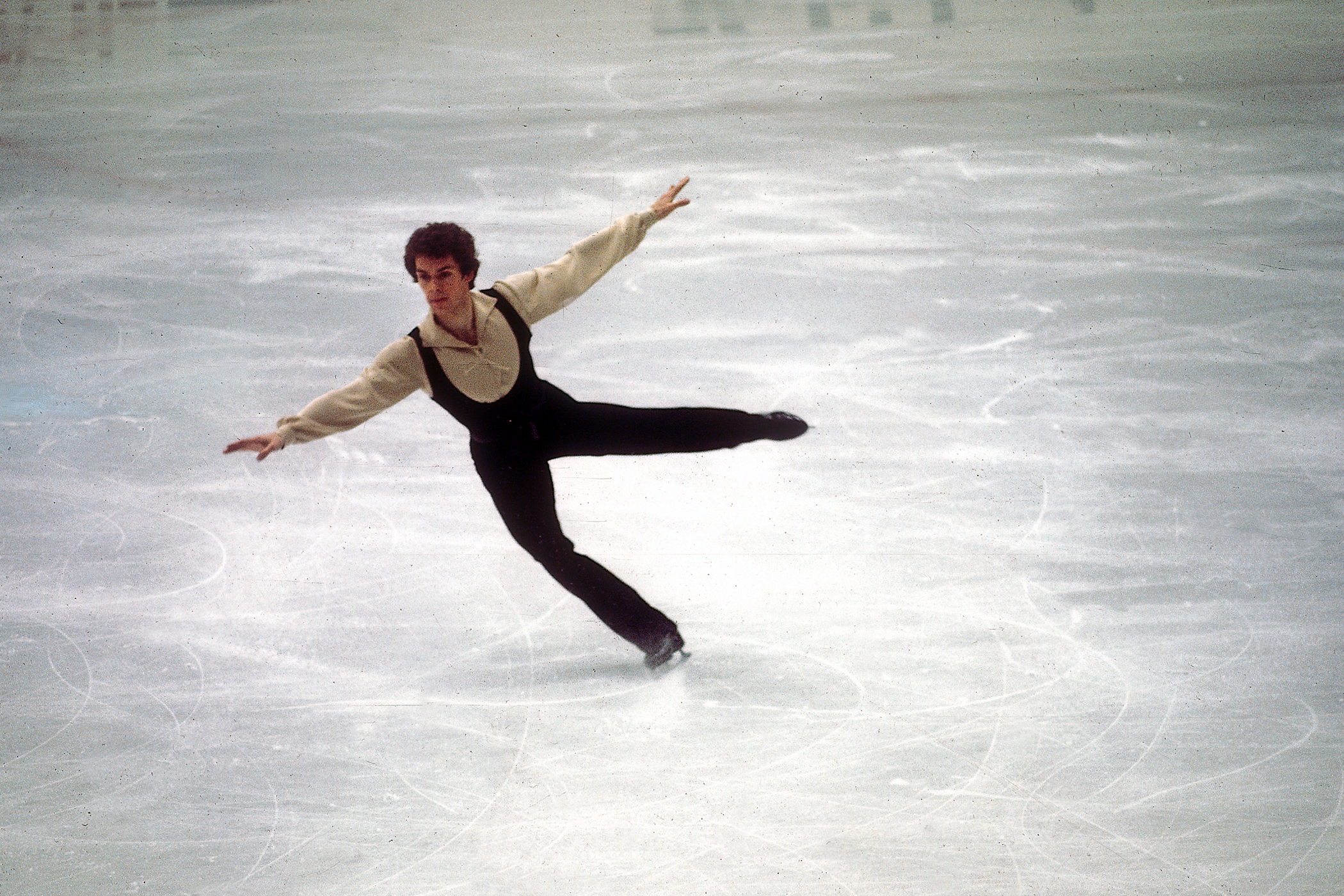Shortly after he announced his retirement from tennis in 1999, Boris Becker and I had lunch in a London restaurant. He was a brooding presence, at one moment proud and prickly, the next playful but a little lost.
At the end of the meal, I asked him what he was planning to do for the rest of the day. He said he was going out to an event later that evening, where he intended to “spread a little superstardust”.
That phrase, with it’s strange mixture of boastfulness and self-mockery came to mind when I learned some time later that it was around that period that he impregnated a Russian waitress in a broom cupboard at the Mayfair restaurant Nobu.
The whole scenario suggested his celebrity was a blessing and a curse, something that would open doors (including to broom cupboards), but which would also swing back in his face, usually on the front page of German and British tabloids.
In his new memoir Inside, Becker, now 57, laments the fame that engulfed him after winning Wimbledon as a 17-year-old. He was too unformed to deal with the adulation, much less the scrutiny and criticism that accompanied it. He suggests that all the attention impeded his development, paving a way for the lifestyle and habits that led eventually to his imprisonment in 2022 on charges under the Insolvency Act.
Forty years ago, the tennis circuit was in many respects a tougher environment than it is today, at least for the big names. Nowadays, players are surrounded by protective teams, but back then it was just a coach and perhaps the parents. There weren’t media advisers to help a youngster from the industrial town of Leimen in the old West Germany deal with the intrusive spotlight. Nor was wise financial counsel easy to come by.
Yet if precocious success was the cause of his downfall, that downfall has in turn resulted in a superior sporting book that goes far beyond the rehashing of long-forgotten tennis battles. Becker’s depiction of prison life, drawn from the eight months he spent inside, is not just vividly written, thanks to ghostwriter Tom Fordyce, but eye-opening and often harrowing.
Becker is first placed in HMP Wandsworth, an overcrowded Victorian prison that, as he notes, is only a couple of miles from Wimbledon, the scene of his greatest triumphs and where he lived from 2012 until his incarceration and subsequent deportation in 2022. Everything is a shock to the system: the mouldy cells, the prisoners screaming through the night, the execrable food, and the fact that everything he does – when he sleeps, eats, showers – is determined by an unyielding system.
Related articles:
Then there’s the widescale drug use, the threats, the violence, the need to form alliances for protection. Not since the excellent BBC prison drama Time, with Sean Bean and Stephen Graham, has the grim reality of prison life been so memorably captured.
Prior to sentencing, Becker is informed by his lawyers that he will spend only several weeks in a clearing prison before being moved to a much less intimidating open prison. But once locked up he learns that, because he’s a foreigner, there will be little fresh air for him. Instead he’ll be sent to another enclosed institution full of violent but foreign criminals, Huntercombe in Oxfordshire.
Newsletters
Choose the newsletters you want to receive
View more
For information about how The Observer protects your data, read our Privacy Policy
Becker compares his strategies for survival, mental and physical, to how he set about winning in tennis. There is probably no sport that is more psychologically testing. While it places tremendous demands on the body, tennis is first played in the mind. And unlike in team sports, the individual player has no one but themself to depend on when out there on the court.
For the German, his love of tennis ended when he lost the Wimbledon final in 1991 to his countryman Michael Stich, after which motivation became much harder. Yet he didn’t want to quit prematurely like Björn Borg. “I love Borg,” he writes, “but I’ve seen what happened to him afterwards, and I don’t want that to happen to me.”
He means the booze and drugs, the listlessness, the succession of unhappy relationships, what he calls the “downward spiral” that followed Borg’s unexpected retirement when still only 26.
Becker’s depiction of prison life is not just vividly written but eye-opening and often harrowing
Becker’s depiction of prison life is not just vividly written but eye-opening and often harrowing
The Swede writes about all this, or his third wife Patricia does, in his own new memoir Heartbeats. It’s a fascinating subject, in theory, but the problem is that Borg, as he admits, has never liked talking: “It wasn’t my thing then, and it’s not my thing now.” And his wife is no prose stylist. Between them, the anecdotes lack descriptive power, often turning epic sporting contests into meetings that have all the tension and drama of two strangers passing each other in a supermarket.
His retelling of celebrity encounters are even less insightful. Andy Warhol was “super shy and super bold”. Pelé “was always a fun guy to be around” and Muhammed Ali “was the greatest of them all”.
Someone else he mentions is Becker, to whom he can “really relate” because he’s “made a lot of bad decisions and business deals too”. Apparently, Becker, 11 years Borg’s junior, calls the older man BB1 and himself BB2, and the Swede believes they are much alike. Although neither seems given to intellectual reflection, Becker is clearly more cerebral. Borg’s great strength, aside from his sublime talent, was to keep his emotions pent up, so that his opponents only ever saw an unruffled figure on the other side of the net, whatever the score. That effort took its toll when the fiery John McEnroe began to get the better of him.
Becker was a little more calculating, which may have helped him to become a highly effective coach of Novak Djokovic. He told me that when he was a player, he would deliberately ignore his opponents in the locker room before a match, as if they were unworthy of his consideration. A version of the same tactic plays out in prison where the then 54-year-old tries to give the impression that he’s not to be messed with, while carefully avoiding the eye of anyone who might mess with him, which is almost everyone.
How did it come to this, a multi-millionaire with global recognition and endless opportunities, reduced to cosying up to Albanian drug dealers to ensure his wellbeing? The short answer is his extravagant ways with money: two divorces, four children, numerous houses, and several failed business ventures all add up to a lot of outgoings.
But Becker is not the kind of person who cuts his coat according to his cloth; he’s much more inclined to visit a Savile Row tailor. He blames poor advisers, a dodgy business manager, ill-informed lawyers and, of course, that damagingly early glory. If character is destiny, however, then Becker’s swaggering self-belief always dwarfed his self-knowledge.
Prison is a tough place to take an unblinking look in the mirror, but with the encouragement of an enlightened prison officer, he enrols in a course in stoicism and then helps to teach it. Perhaps, as he writes, this really is his “second chance” at “living better”.
Even so, some readers may have doubts about the sentimental ending recounting the vows from his marriage last year in Portofino to his third wife, a São Tomé-born political risk analyst 23 years his junior. What would the humility-preaching stoics have made of the lavish three-day celebrations? Becker is too busy sprinkling superstardust to ask.
Inside: Winning. Losing. Starting Again by Boris Becker with Tom Fordyce is published by HarperCollins (£22); order a copy from The Observer Shop for £19.80.
Heartbeats: A Memoir by Björn Borg, as told to Patricia Borg and translated by Bradley Harmon is published by Sphere (£25); order a copy from The Observer Shop for £22.50.
Delivery charges may apply
Editor’s note: our recommendations are chosen independently by our journalists. The Observer may earn a small commission if a reader clicks a link and purchases a recommended product. This revenue helps support Observer journalism
Photography by Getty Images



